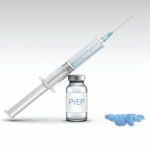The high cost of health care in the United States can make securing coverage for yourself or your family a daunting task. But if you’re living with HIV, then figuring out how to pay for your care and treatment and how to navigate the country’s state-by-state patchwork of health care options can be downright overwhelming. Your eligibility for coverage depends on your state of residence, income, employment and health status, age and citizenship. Thankfully, the Affordable Care Act (ACA) has expanded insurance coverage for millions of people in the United States.
Since there are so many ways to get health coverage, it’s important to first work with your doctor or health care professional to decide on the right treatment regimen for you. There are many ways to supplement your insurance coverage to get your specific needs covered. Many local HIV service organizations can even help you navigate your options. You can find one near you at directory.poz.com.
Here’s a breakdown of how you can get your access to health care and HIV medication:
Through Your Job
Employers with 50 or more employees are required by law to offer health insurance. Many small businesses also offer insurance to their employees because doing so means they qualify for tax credits. Whether you already have a job with health insurance or are considering taking a new one, it’s important to know that employers who offer health care can’t discriminate against employees based on their health status.
You may need to ask whoever handles the health plan at your job—or your prospective job—for the details of your plan, so that you can find out if it covers the drugs and care you need as well as how much you’ll have to pay out-of-pocket. But it’s up to you whether you want to disclose that you have HIV.
In the past some job-based plans wouldn’t cover pre-existing health conditions (like HIV), or they would impose a waiting period before coverage starts or charge higher premiums or out-of-pocket expenses. The ACA requires all health plans cover pre-existing conditions immediately.
In many states, AIDS Drug Assistance Programs (ADAP) will continue to help you pay premiums and co-pays on your job-based insurance.
Through Private Insurance
Private insurance plans used to be cost prohibitive. But one of the primary features of the ACA is the creation of state-run health insurance exchanges. These exchanges help individuals and small businesses purchase affordable and quality health insurance plans. If a state does not create an exchange, the federal government may make one available.
Under the ACA, private plans are not allowed to block you out or charge you more because of HIV or any other pre-existing condition. Plus, the ACA also provides financial assistance in the form of tax credits for people with low and middle incomes. Click here to find out if you qualify for these credits based on your household size and income. And like employer-based insurance, in some states, ADAP may be able to help with your premiums and co-pays.
Through Medicaid and/or Medicare
Medicaid is a critical source of coverage of people living with HIV. Currently you can qualify for Medicaid if you have a low income and are part of a “categorically eligible” group (children, parents with dependent children, pregnant women, and people with disabilities). Each state establishes and administers their own Medicaid program but they are all required to cover certain mandatory benefits. Under the ACA, states have the option of expanding Medicaid eligibility to include people below certain income levels. Contact your state’s Medicaid office to find out if this option is available to you. You can apply for and enroll in Medicaid at any time.
You can qualify for Medicare if you are age 65 or older or if you have certain disabilities. Medicare coverage includes outpatient care, prescription drugs, and inpatient hospital care. Click here to learn more.
Through the Ryan White CARE Act and the AIDS Drug Assistance Program (ADAP)
The Ryan White CARE Act is the largest federally funded program for people with HIV. It provides care and support services to people who don’t have insurance or don’t have enough coverage through their other plans. Ryan White also provides funding for ADAP, which provides HIV medications to low-income people living with HIV who have limited or no health coverage from private insurance, Medicaid, or Medicare. Each state administers its own ADAP program so income requirements, plus exactly what is covered, vary greatly by state. Find your state’s ADAP info here and call to see if you qualify.
Even with new insurance coverage options through the ACA, Ryan White continues to play a huge role to help with gaps in coverage and affordability. But the funding for this program depends on Congress, so it’s important to advocate for its reauthorization.
Through Patience Assistance Programs (PAPs)
Patient Assistance Programs (PAPs) offer free or low-cost HIV medications to people who do not qualify for any other insurance or assistance programs such as Medicaid, Medicare, or AIDS Drug Assistance Programs (ADAPs)
In addition to PAPs, some pharma companies offer co-pay assistance for their drugs, including non-HIV drugs. For info on PAPs and co-pay programs, visit poz.com/drugassistance.
Visit the U.S. Health Resources & Services Administration (HRSA) website to find additional resources for HIV care and services.
Last Reviewed: February 27, 2023














